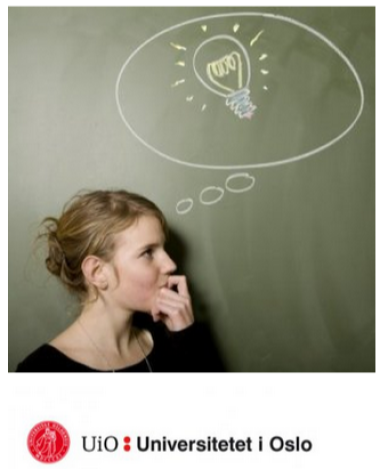The award-winning Norwegian Entrepreneurship programme, Gründerskolen, is a Norwegian academic cooperation programme involving all universities and several university colleges in Norway, coordinated by the Centre for Entrepreneurship at the University of Oslo. The programme has received a prize for ‘Best quality in higher education’ from the Norwegian Ministry of Education and Research and a prize for “best learning environment” at the University of Oslo.
The Norwegian Entrepreneurship programme was founded in 1999 by Professor Nils D. Christophersen at the Department of Informatics at the University of Oslo. In the first year of the programme’s operation, six students from Norway went on to Silicon Valley. Since then the programme has grown rapidly, and in 2009 there were nearly 300 applicants for approximately 150 places. Based on the latest information, the alumni network has nearly 1,800 former students and is by far the biggest network of its kind in Norway.[1]
The Gründerskolen programme is an accredited course on entrepreneurship/business start-up. The core part of the programme consists of a period spent abroad - either in Boston, San Francisco or Toronto (the last beginning in 2024) - where the students serve as interns in a technology based start-up company, taking entrepreneurship courses on financing, writing a business plan, and marketing at the local university.[2] A key feature of the programme is that it is not aimed predominantly at students from business schools. The idea is to foster the development of entrepreneurs across different professional fields. The main criteria to be accepted at Gründerskolen are a completed BA degree and genuine interest in working in a high-tech start-up environment.
The programme starts with a preparatory phase in Norway consisting of seminars and team building sessions where students are introduced to international business culture.[3]
The placement abroad coupled with the lectures at the partner universities offer students a practice based opportunity to experience life as an entrepreneur. All of the host companies chosen have to be high tech and under three years old. The students do not receive payment for their time in the company. The lecturer(s) mentor and advise the students on the preparation of their plans, monitor their progress and provide critical feedback. Students work in groups and at the end of the programme they are assessed on their business proposal orally and in writing. The partner university issues a certificate of attendance, a critical appraisal of the business plan and a final grade. The period abroad counts as credits in the Norwegian higher education system.
When the students return to Norway, a seminar is organised with Norwegian entrepreneurs, who lecture on Entrepreneurship in the Norwegian Context and how to engage in ethical conduct as an entrepreneur. The students also hand in their project paper and present it to a panel of supervisors and adjudicators.
The activities of the programme are very much practice-oriented. The programme requires that the participants possess sufficient knowledge in their main field of study. Entrepreneurship and commercialisation are not thought as academic topics. Students are rather expected to learn through an entrepreneurial experience, and the courses they follow are aimed at providing the students with a toolbox, a network and basic experience necessary to kick-start their own career. Entrepreneurs are used as mentors to enhance the practical focus and to increase the students’ exposure to the entrepreneurial business environment.
Innovative features
- Entrepreneurship in teaching and learning
- University – business/external relationships for knowledge exchange
- The Entrepreneurial University as an internationalised institution
Impact of the change
The initiative has successfully stimulated enterprise creation. There is a long list of companies that were established as start-up companies that have grown out of Gründerskolen, for example: Rubrikk, Innovitae, InCent Pte Ltd and Windflip AS. In 2010 the entrepreneur who started the company Windflip received a prize as entrepreneur of the year by the Norwegian Industry confederation.
Further reading
University of Oslo / Roskilde University Centre: Karina Birkeland Kjellsen: Cultivating Entrepreneurial Spirit; On How Institutional Environments Influence Individual Decision-Making –Implications for Developing Effective Innovation Strategies, 2003
https://www.duo.uio.no/bitstream/handle/10852/17716/kjellsen.pdf?sequence=2
Sources
[1] Source: https://grunderskolenalumni.wordpress.com/om-gsa/
[2] Source: https://grunderskolen.no/destinasjoner/
[3] Source: https://grunderskolen.no/studiet/




